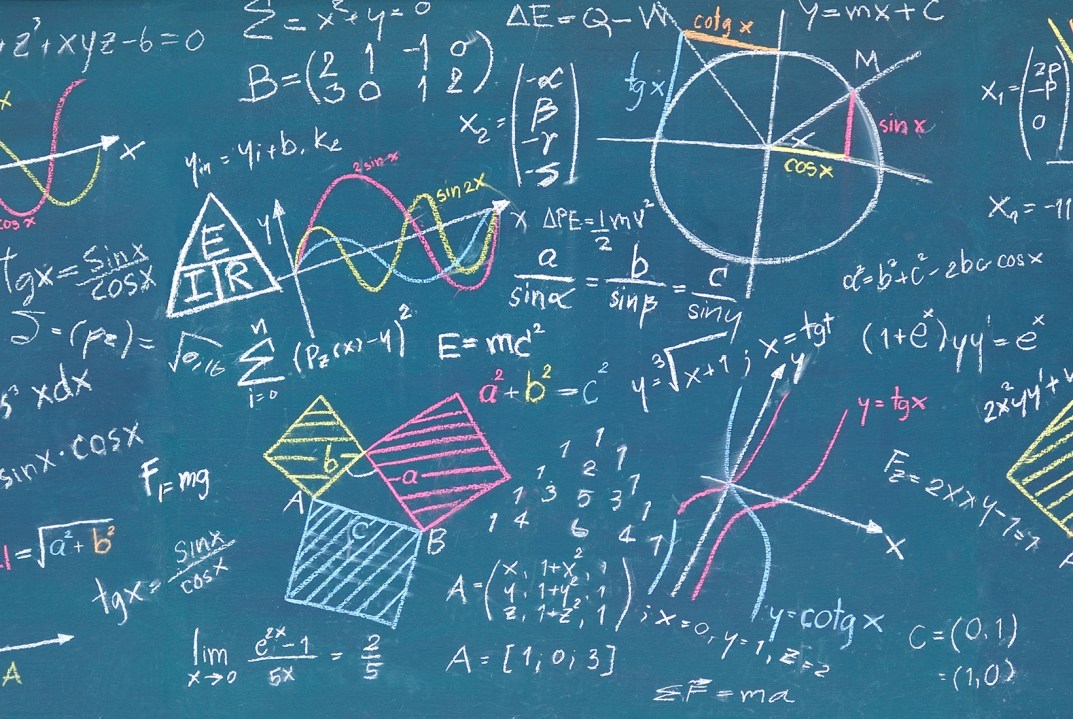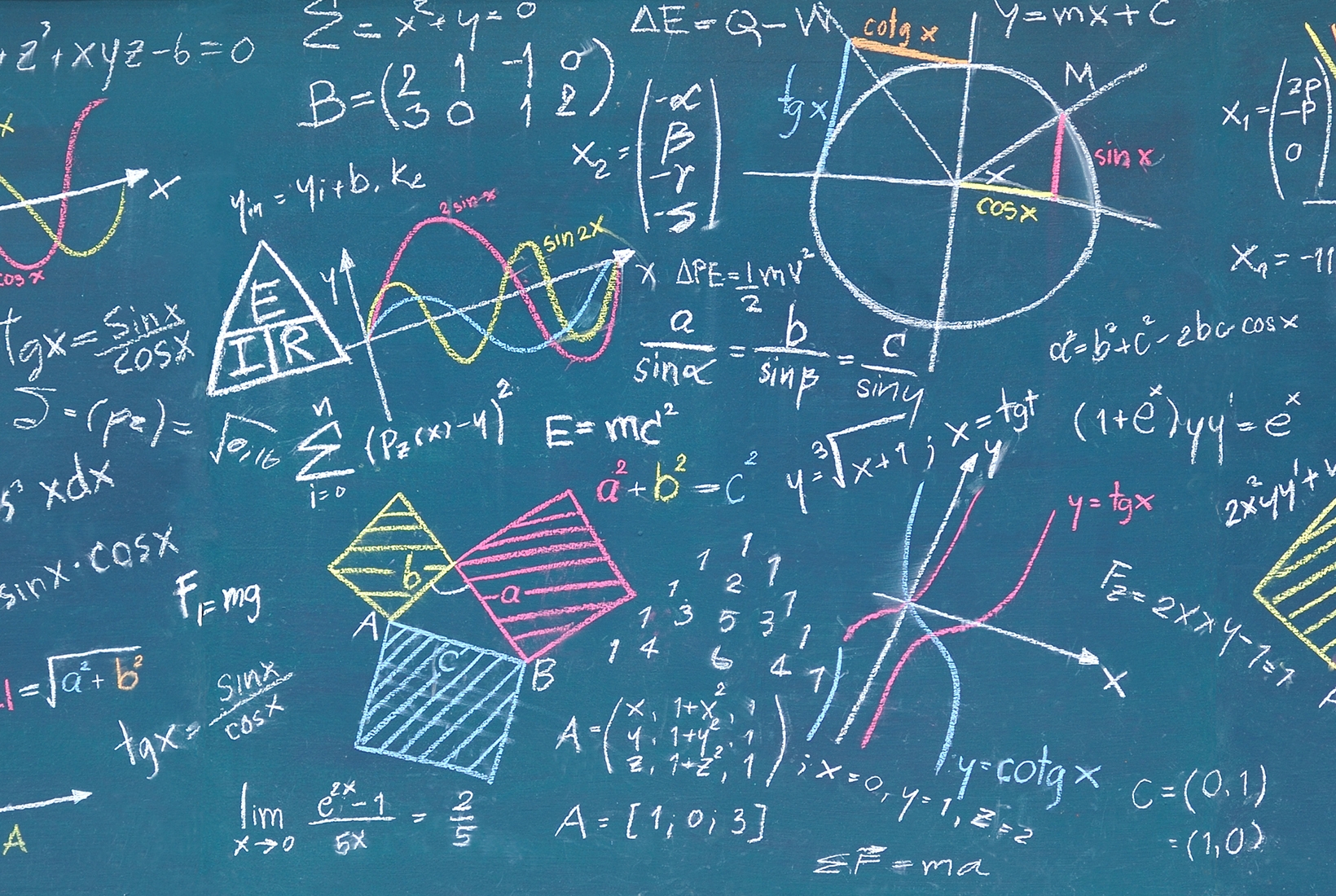‘What is the point of learning maths? When do you ever actually need it? How does it ever affect your life?’ That’s the frequent complaint of my school-age children, labouring over their times tables and number bonds. It was my complaint as I struggled to tell median from mean, or sine from cosine.
Well. Now we have a nation and a world bewitched and terrified in equal measure by a ground-level demonstration of what an exponential function does. Our entire society is being shaped for a generation by that elegant, predictable, horrifyingly steepening curve. One shred of comfort in this catastrophe is the thought that no journalist will ever again write ‘increasing exponentially’ as a fancy-sounding way of saying ‘increasing a lot’.
Mathematical models help you to feel like you have a handle on what’s going on
Coronavirus has made amateur mathematicians of us all. Like many people, I’m gripped by the nightly bulletins of the FT’s data–visualisation reporter John Burn-Murdoch — who posts lucid graphs comparing infection rates and death rates globally. JB-M fans are all, by now, hip to why he’s using logarithmic scales on the Y-axis. The last mathmo I remember getting excited about was the psephologist Nate Silver, after he called the 2008 and 2012 US presidential elections. Before that, it was crypto that was sexy: there was Alan Turing and — in more recherché circles — little fan clubs for Pretty Good Privacy’s Phil Zimmermann and Bitcoin’s Satoshi Nakamoto. But cometh the hour, cometh the geek.
And in a situation that is so wide and so complex, so impossible to take in as a gestalt from the welter of anecdotes and assertions, so remote in its entire truth from any single person’s experience, the mathematical abstraction of this sort of bulletin has a thrilling clarity. Mathematical models help you to feel like you have a handle on what’s going on. That’s a cognitive blessing — and a dangerous seduction. Downing Street has been accused of having spent too much time with mathematicians and not enough time with epidemiologists in the early stages of the outbreak. And as James Ball wrote eloquently in these pages last week last week, the problem with any model is that it’s only as good as the data you give it: garbage in, garbage out. Mathematicians have produced plausible models suggesting that we’re in the grip of a fast-spreading disease that kills one in 20; and similarly plausible models suggesting that most of us have already had it and that it kills a fraction of that proportion. The true fatality rate is the proportion of infected people it kills; and until we have reliable tests to find out how many people have had Covid-19 we’re still, pretty much, at the educated–guesses stage of the process. In one of Tom Stoppard’s plays, he has Wittgenstein wonder why people used to think the sun went round the Earth. Someone suggests to him that it’s because it looks like it does. He replies: ‘Well, what would it have looked like if it had looked as if the Earth were rotating?’
Still, needs must. So far my only home-schooling success has been getting my son to map an epidemic in the fictional nation of Covidia (pop. 10,000). Each day, anyone who has the lurgy spreads it to three other people. Anyone who has it gets better after five days. Social distancing (two infections per case) starts on day five; lockdown (one infection per case) starts on day seven. The vaccine — which stops the spread — arrives on day nine.
An eight-year-old can do that maths. Mine did. A little light multiplication, some four-digit subtraction, rinse, repeat and you’re there. And when we plotted it on a graph, it swooped up in just the curve you’d expect. The lurgy swept through Covidia, and at last subsided, and the good people of Covidia went about their business as before. But there were limits to the verismo of our little exercise. There was no social psychology. No politics. No economics. And no fatality rate. This lurgy didn’t kill anyone.
Here’s another type of calculation that I think many people are making. We think: what if I took my hour’s exercise at the same time as my friend, and chatted from two metres away in the park? What if I popped to the shop to pick up a bottle of plonk, or some basil to make lockdown pesto? I mean, you’re going to be two metres from other people in the park, so why not someone you know? I mean, basil and wine aren’t technically vital to subsistence, but the virus doesn’t know that, does it? We’re thinking of pinch-points in the pasta aisle, or the narrow path into the park. And we’re thinking, vaguely, of the surfaces we’ll be coming into contact with — that door that will yield to an elbow on the way in but not on the way out; the handle of that shopping basket; the keys of the pin-pad.
But we say to ourselves, perhaps: come on. I’m being good. I’m not one of those idiots who flouts the rules. I’ll be careful. There can’t be more than a one in a thousand chance that I’m going to get the virus or pass it on! Who knows: perhaps we’re right. Let’s say one in a thousand — not the sort of odds that make us turn a hair as individuals — is bang on. So for every million people who go through the same thought process, and draw the same conclusion, and go out for that bottle of plonk, that’s an average of 1,000 potential new transmissions.
We find it, as I say, hard to properly take in what’s happening, to make the leap from thinking about personal risk to thinking about population-level risk and the way we’re all implicated in that. We know, on paper, that 1 per cent of a very big number is still a big number. But we don’t yet know it in our bones. The whole movement of our culture over the past 50 years has been away from the collective, and maths can only do so much to reverse that.








Comments